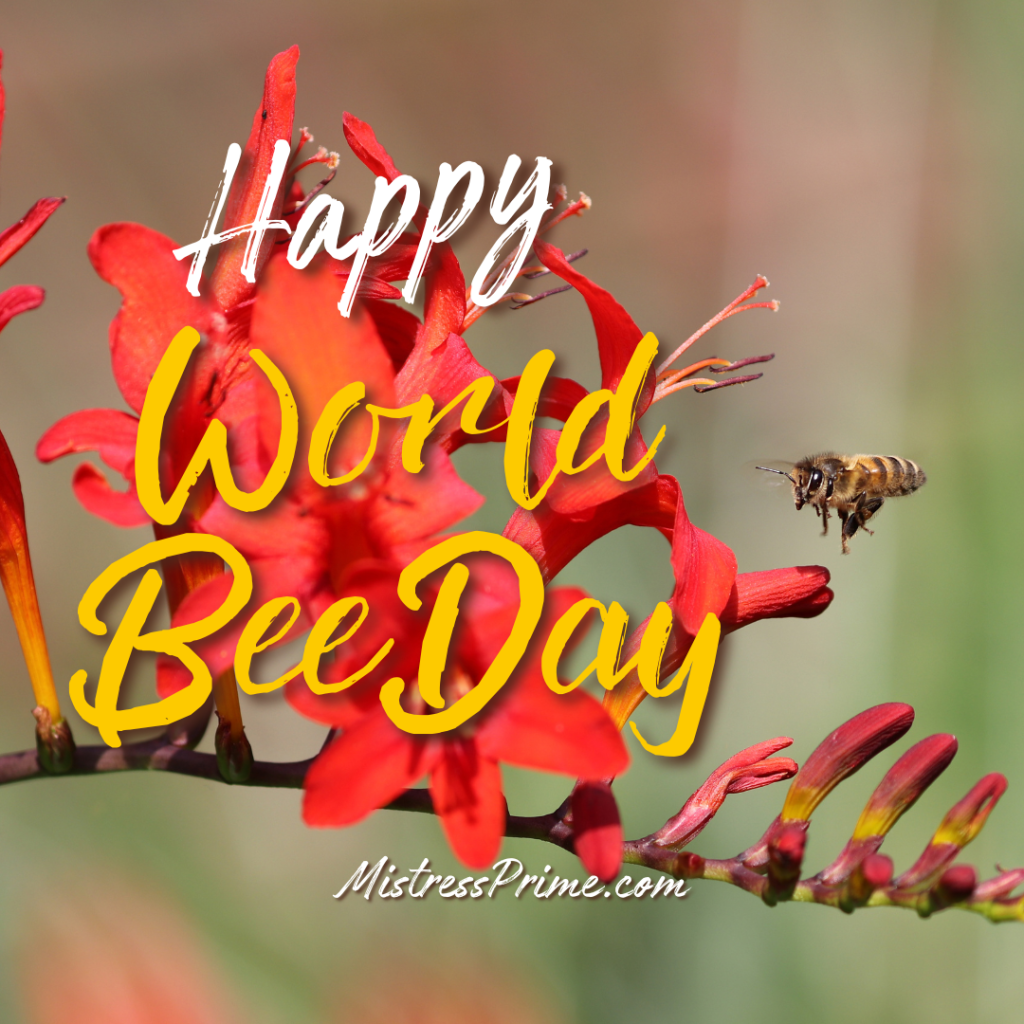Happy World Bee Day! This year’s theme is “Bee Engaged with Youth.”
During a recent conversation I was asked, “What’s World Bee Day anyway? Is that just some made up holiday?” Technically, all holidays are made up so… yeah?
If for some reason you’ve never heard about it let me give a short overview:
World Bee Day is an annual observance held on May 20th that aims to raise awareness about the importance of bees and other pollinators for the ecosystem and human survival. It was officially designated by the United Nations in 2017 to coincide with the birthday of Anton Janša, a pioneer of modern apiculture (beekeeping), who came from a family of beekeepers in Slovenia where beekeeping has a long-standing tradition. The day serves as a reminder of the critical role bees play in pollinating crops, sustaining biodiversity, and ensuring food security. It also encourages efforts to protect bees and their habitats from threats such as habitat loss, pesticides, pollution, and climate change.
People celebrate World Bee Day in various ways, all aimed at raising awareness about the importance of bees and other pollinators and promoting actions to protect them.
Educational Events: Organizing workshops, seminars, and conferences to educate the public about the significance of bees, their role in pollination, and the threats they face.
Beekeeping Demonstrations: Hosting demonstrations or open houses at beekeeping facilities or apiaries to showcase the art of beekeeping, honey extraction processes, and the importance of sustainable beekeeping practices.
Planting Bee-Friendly Gardens: Encouraging people to plant bee-friendly flowers, herbs, and plants in their gardens or community spaces to provide food and habitat for bees and other pollinators.
Campaigns and Advocacy: Launching campaigns or initiatives to raise funds for bee conservation projects, promote bee-friendly policies, or advocate for the reduction of pesticide use and the preservation of natural habitats.
Honey Tastings: Hosting honey tasting events where people can sample different types of honey and learn about the diverse flavors and properties of honey produced by different bee species and in different regions.
Art and Cultural Activities: Organizing art exhibitions, storytelling sessions, or film screenings related to bees and pollinators to engage people of all ages and backgrounds in the celebration.
Community Service: Participating in community service projects such as building bee hotels, creating pollinator-friendly habitats in urban areas, or cleaning up bee habitats to support bee populations.
These activities help raise awareness, foster appreciation for bees and other pollinators, and inspire action to protect them and the ecosystems they support.
Here are some organizations and initiatives that support World Bee Day and work to protect bees and other pollinators:
Food and Agriculture Organization (FAO) of the United Nations:
The FAO actively promotes World Bee Day. By observing this day each year, we raise awareness about the essential role bees and other pollinators play in maintaining our ecosystems and the challenges they face.
Bees for Development (United Kingdom):
This organization focuses on sustainable beekeeping practices and supports beekeepers in developing countries.
BEES for the World (Germany):
BEES stands for Biodiversity, Education, Empowerment and Sustainablity. They work to promote beekeeping and raise awareness about the importance of bees.
Elephant and Bees Project (Kenya):
This initiative explores the relationship between elephants and bees, using beehive fences to protect crops from elephants and promote pollination.
Federation of Nepal Beekeepers (Nepal):
The federation supports beekeepers in Nepal and advocates for bee-friendly practices.
Honey Bee Research Centre (Canada):
Since its establishment more than a century ago, the HBRC has been a leader in apiculture research primarily focused on honey bee health.
Pollinator Partnership Canada:
Pollinator Partnership Canada (P2C) is a registered charity dedicated to the protection and promotion of pollinators and their ecosystems through conservation, education, and research..
Purple Hive Project (Australia):
The Purple Hive Project, a B honey initiative, aimed to help protect honey bees (Apis mellifera) from the significant threat of Varroa Destructor (Varroa mite) arriving in Australia.
Project Apis m. (USA)
Project Apis m is a nonprofit organization that funds and promotes honey bee research, resources, and solutions for beekeepers and the industry.
Planet Bee Foundation (USA)
Planet Bee Foundation is dedicated to creating a green-minded generation by teaching about the importance of bees as a pathway to STEM, conservation, and innovations in agriculture.
I hope this information helps you to find a way to support our pollinator friends and Save the Bees.

Leave a comment